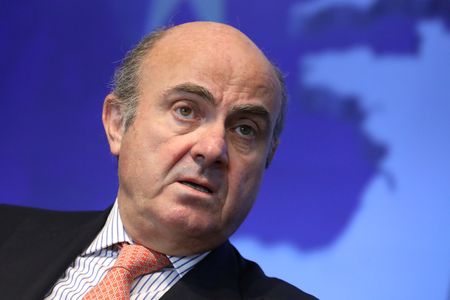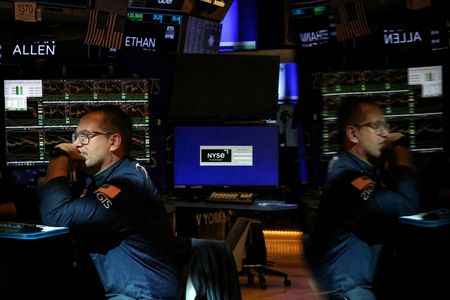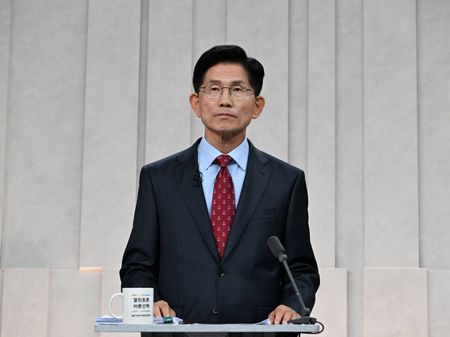MADRID (Reuters) – Trade tariffs announced by U.S. President Donald Trump could trigger economic uncertainty but the impact on inflation is less clear, European Central Bank Vice President Luis de Guindos said on Monday.
Trump’s plan for 25% tariffs on all steel and aluminium imports into the United States, on top of existing metals duties, represents another major trade escalation.
“Today we woke up to the issue of steel and aluminium,” de Guindos told Spanish broadcaster TVE. “Apart from the geopolitical risks, I think that the policy of the new American administration obviously creates a situation of huge uncertainty.”
The ECB’s number two official said that the implementation of tariffs would create a “supply shock” therefore “fundamentally” affecting global economic growth.
“The impact on inflation is much less clear (…) because if you have a fall in economic activity then immediately that tempers the evolution of the inflationary tensions,” de Guindos said.
De Guindos said it was important to avoid a trade war, adding that Europeans needed to be careful in their response to potential U.S. trade tariffs.
“Sometimes the initial announcements don’t end up materialising (..) therefore, you have to take a prudent and intelligent approach,” he said.
De Guindos said that inflation in the euro zone was converging towards the ECB’s medium goal of 2% and that decisions on the bank’s future monetary policy would be taken meeting by meeting.
(Reporting by Jesús Aguado and Emma Pinedo; editing by Inti Landauro and Kate Mayberry)










